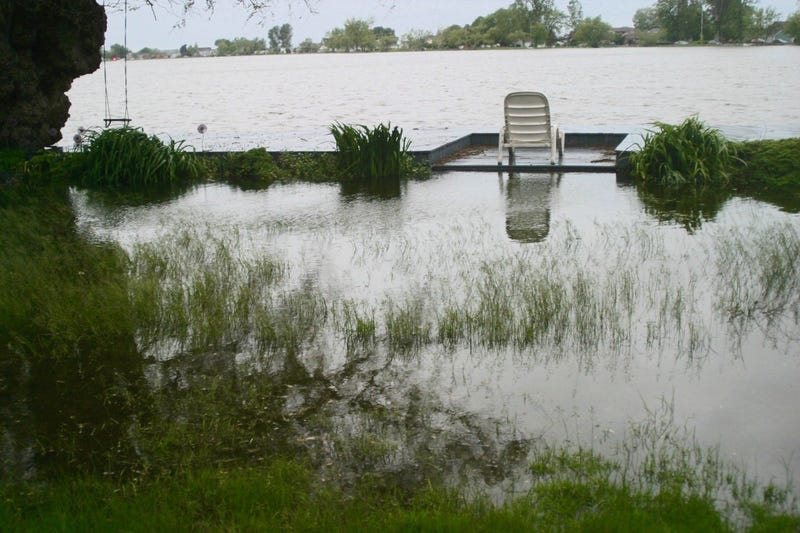
One such member was John Pyles, who doesn't live directly on the shoreline but lives on the edge of Long Pond, which is effected by lake levels. He wasn't particularly happy that the public wasn't allowed into the actual meeting, saying that the people who know most about the struggle were on the outside looking in.
"This is pretty serious, and we've had two occasions now within two to three years of having this problem get to be the point where it's going to damage property," said Pyles.
"Right now the water is up to my house at Cranberry Pond, and you cant stop it," said an emotional Jackett. "I've spoken to the county office of emergency management as well as the state office of emergency management, and they have sent over representatives that haven't been able to do anything to help me."
"Letting out water in some areas does not necessarily just relieve the water levels in that area; it has an impact on other areas as well," said Corwin. "What we're trying to do at this juncture is to get a better understanding on how the (2014 Plan) is implemented and how it's working, so that we can make good decisions on what do going forward."
State Senator Pam Helming said the overall mood of the meeting was positive, but she's still disappointed that nothing can really be done about the root problem immediately.
"(Residents) are losing their homes, businesses are shutting down, the local governments are losing that sales tax revenue, those tourism dollars," said Helming. "It's having a horrendous impact, so hearing that there's nothing we can do is incredibly frustrating."
"I would just ask for patience; I know it's very difficult to ask for patience from people who are evacuating from their homes and losing their businesses," she began. "I'm a resident of Western New York, I used to represent Niagara County Lake Ontario shoreline, I understand exactly what it means and what it translates into and certainly talking to people here in the room, your elected officials, we have a great understanding as well on what high water levels mean to people who are living along the shoreline. We are paying attention...I know the IJC has been criticized in the past for not listening; we're listening."
